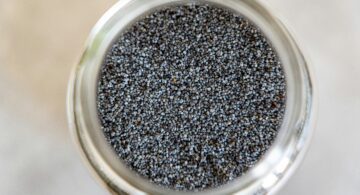The Fats Any Health Professional Would Tell You to Eat
Fat: At one point in our history, people were considered wealthy because they ate fatty meals and became large and round in stature. Later fat was cast aside as an unhealthy “do not pass go” ticket to a heart attack. Now, most are split. While nearly every health professional will agree that healthy fats go a long way to promote a healthy body, many consumers are still paralyzed by its shaky past.
However, an important distinction to make is the one between good and bad fats. Bad fats, like trans fat and saturated fat found in processed foods increase your bad cholesterol, lower your good cholesterol and widen you in places you’d rather not see growth.
Yet healthy fats do just the opposite. Healthy fat is a necessary component in your nervous system and helps you absorb Vitamins A, D and E. But olive oil and avocado aren’t the only beneficial fats you can eat. Here are three more that any health professional would happily recommend.
Macadamia Oil
Also referred to as macadamia nut oil, this is one of the least known beneficial fats on the market today. However, its “delicate flavor,” according to InstituteForNaturalHealing.com, makes it the perfect substitution for olive oil in homemade dressings. And, thanks to its resistance to oxidation, it’s perfect for cooking your favorite vegetables on the stove top. It’s bursting with antioxidants that protect against cell damage and has higher levels of monounsaturated fats than olive or flaxseed oil.
Use it: Add a nutty flavor to your next batch of homemade hummus with macadamia nut oil. Remember, just a dash will go a long way.
Ghee
You may have heard it called clarified butter, but either way, this healthy fat is butter in its more pure form—butterfat. “When butter is cooked long enough for the water in the butter to completely evaporate and for the milk solids to brown and produce a nutty flavor, you get a butter product called ghee,” according to CreationBasedHealth.com. That doesn’t sound healthy, does it? Well, people in the East Indian culture have long known about the health benefits of ghee. The long list of reasons why you should too includes:
Decreases inflammation: Ghee has been found to reduce both leukotriene secretion and prostaglandin, overproduction of which is unhealthy and leads to inflammation.
Easier to digest: When you cook away the milk solids, the lactose is burned off, making it easier to digest than vegetable oil or regular butter.
Packed with antioxidants: Thanks to an ample supply of cartenoids and vitamins A and E, ghee: improves your immune system, fights free radicals and reduces the risk of heart disease.
Use it: Ghee can be used in place of cooking oil; add a delicious sear to your steak or a creamy texture to your curry stir-fry.
Almond Butter
There are a slew of nut butters on grocery store shelves today, and for good reason: nut butters are an excellent source of monounsaturated fat, with a whopping 3 grams more per serving than peanut butter. A low sugar content, high omega-3 content and lack of hydrogenated oil makes it a powerhouse among nut butters. Not to mention it’s packed with calcium and magnesium, both of which improve your bone strength and muscle and nerve function.
Use it: Use almond butter in any and every dish—add protein to your oatmeal, put a spoonful in your smoothie, smear it on a slice of sprouted bread or just eat it right out of the jar.
As with any and all foods, regardless of how healthy they are, eat everything in moderation. If you eat a whole jar of almond butter in one sitting, it’s no longer a healthy fat, just fat. However, when you add moderate amounts of these items to your diet your body will thank you. From an improved immune system to higher fat burning, any health professional would recommend these three healthy-fat superstars.









